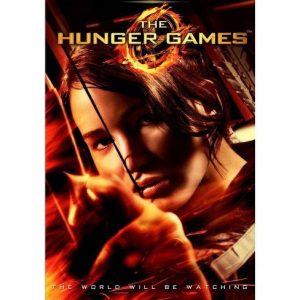Inequality Favours Noone
The Hunger Games and Equality
by Çağla Nihan Atik

The Hunger Games (2008), a novel by Suzanne Collins, draws attention to an important value with its unlighted aspect: inequality that enslaves even the privileged side. The novel revolves around Katniss, Peeta, and their survival in “The Hunger Games.” It is a TV show where 2 young people -one woman and one man- from each district of the country, who are picked by a lottery, are put in an arena. They fight for their lives until one of them is left. These districts are separated by their products and how much the Capital likes them. Of twelve districts in the country, three of them are the favorites of the Capital. Therefore, their children are generally trained to win the games. In other words, the games mean something fun and prestigious to play to certain districts and certain death by the hand of a peer. They mean something entirely different to the kids of the Capital—they are exempted from the games. The book displays the role of fear in the continuation of this regime. Although the picture seems positive for the districts who are dear to the Capital or the Capital itself, they all are also steered with fear. In other words, The Hunger Games offers the reader a picture where inequality is not beneficial for anyone.
The book shows a country that is ruled by a dictatorship so equality cannot be argued. The country is divided into twelve districts and a capital that is rich and isolated from the districts. The book also displays the lack of equality mainly in two situations. There are more rich districts where the kids are prepared for the games, and the capital’s kids are not included in the games. We can barely talk about freedom in the book, too. Young people are obliged to kill and die while their families are watching on TV and a group of rich people is betting on them. In addition to the districts, where the administration takes young people from their homes like objects, the Capital is also far from freedom. There is a system of thought, and the Capital has its part to play just like any other district. Citizens cannot argue against this system. As a result of this, due to the connection among the values, the violation of human dignity follows where there is no freedom and no equality. The day of picking the children from the districts is called “reaping.” This is a perfect example of what the people of the districts mean to the government: they are crops to be reaped to keep order. The government stands as the Reaper waiting to take children’s lives. The Hunger Games, as dystopian fiction, bears the burden of displaying the importance of equality and justice for everyone. It displays that the privileged people are also bound by the rules that are designed by the government to keep its people intact. In other words, without equality, the regime is bound to be a living hell for everyone in it.
